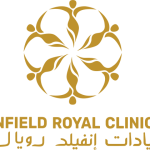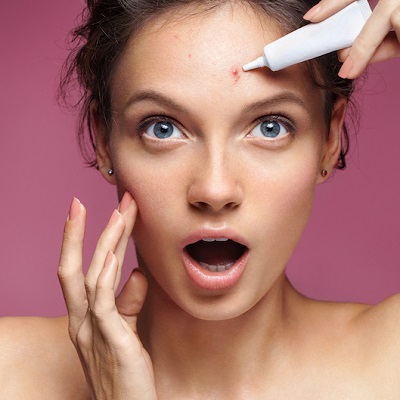Exfoliation is a crucial step in maintaining healthy skin, especially for those with acne-prone skin. At an Acne Treatment Clinic in Muscat, specialists emphasize the importance of exfoliation to help remove dead skin cells, unclog pores, and prevent breakouts. This guide will delve into various effective exfoliation techniques tailored for acne-prone skin, helping you achieve a clearer and healthier complexion.
Understanding Acne-Prone Skin
Acne-prone skin is characterized by excessive oil production, clogged pores, and inflammation. Individuals with this skin type often experience a variety of acne forms, including blackheads, whiteheads, and cystic acne. Understanding the unique needs of acne-prone skin is essential for choosing the right exfoliation method.
The Role of Exfoliation
Exfoliation serves multiple purposes for acne-prone skin. By removing dead skin cells and promoting cell turnover, it helps prevent clogged pores, reduces the occurrence of breakouts, and enhances the overall texture of the skin. However, choosing the appropriate exfoliation technique is vital to avoid irritation and worsening acne.
Physical Exfoliation Techniques
1. Scrubs and Buffing
Physical exfoliants, such as scrubs and buffing pads, work by manually removing dead skin cells. When choosing a scrub, opt for gentle formulations that are specifically designed for acne-prone skin. Look for products with fine particles to avoid micro-tears in the skin.
- Tip: Use physical scrubs no more than 1-2 times a week to prevent over-exfoliation, which can lead to irritation and increased oil production.
2. Exfoliating Brushes
Exfoliating brushes, whether manual or electric, can be effective tools for acne-prone skin. They help to deeply cleanse the skin and enhance the exfoliation process. However, it is crucial to use them with caution and to follow the manufacturer's instructions.
- Tip: Ensure that your brush is cleaned regularly to prevent the accumulation of bacteria, which can worsen acne.
Chemical Exfoliation Techniques
3. Alpha Hydroxy Acids (AHAs)
AHAs, such as glycolic acid and lactic acid, are water-soluble acids that work by dissolving the bonds between dead skin cells, allowing them to slough off more easily. These acids are particularly beneficial for acne-prone skin as they also improve skin texture and promote hydration.
- Tip: Start with a lower concentration of AHAs to gauge your skin's reaction, gradually increasing the strength as tolerated.
4. Beta Hydroxy Acids (BHAs)
Salicylic acid, a type of BHA, is an excellent choice for acne-prone skin due to its oil-soluble properties. It penetrates deep into the pores, effectively exfoliating and unclogging them. Salicylic acid also has anti-inflammatory properties, making it ideal for reducing redness and swelling associated with acne.
- Tip: Incorporate BHA products into your routine gradually, starting with once a week to avoid irritation.
Enzyme Exfoliation Techniques
5. Fruit Enzymes
Enzyme exfoliants, derived from fruits like papaya, pineapple, and pumpkin, provide a gentle yet effective way to exfoliate acne-prone skin. These enzymes break down dead skin cells without the need for harsh scrubbing, making them suitable for sensitive skin types.
- Tip: Look for enzyme exfoliants in masks or peels that can be used 1-2 times a week for optimal results.
6. Professional Treatments
For individuals with persistent acne, seeking professional treatments at an Acne Treatment Clinic in Muscat can be highly beneficial. Chemical peels and microdermabrasion performed by licensed professionals can provide deeper exfoliation, addressing stubborn acne and scarring.
- Tip: Consult with a dermatologist or skincare professional to determine the best treatment plan tailored to your specific skin needs.
Post-Exfoliation Care
7. Hydration is Key
After exfoliation, it is essential to hydrate the skin to restore moisture and prevent irritation. Use a lightweight, non-comedogenic moisturizer that won’t clog pores. Look for ingredients like hyaluronic acid or glycerin, which attract moisture to the skin.
8. Sun Protection
Exfoliation can increase your skin’s sensitivity to the sun. Therefore, it is vital to apply sunscreen daily, especially after exfoliating treatments. Choose a broad-spectrum sunscreen with at least SPF 30 to protect your skin from harmful UV rays.
Common Mistakes to Avoid
9. Over-Exfoliating
One of the most common mistakes people make is over-exfoliating their skin. This can lead to irritation, redness, and increased acne breakouts. Stick to a consistent routine that includes exfoliation 1-3 times a week, depending on your skin’s needs.
10. Neglecting Patch Testing
Before introducing any new exfoliant into your routine, always perform a patch test to ensure your skin does not react negatively. This is particularly important for those with sensitive or reactive skin.
Conclusion
Exfoliation is a powerful tool for managing acne-prone skin when done correctly. By incorporating the right techniques and products, you can promote a clearer, healthier complexion. Whether you choose physical scrubs, chemical exfoliants, or professional treatments, always prioritize your skin’s health and consult with experts at an Acne Treatment Clinic in Muscat for personalized guidance. Remember, achieving clear skin takes time and patience, but with the right exfoliation techniques, you’re one step closer to your skincare goals.






Comments